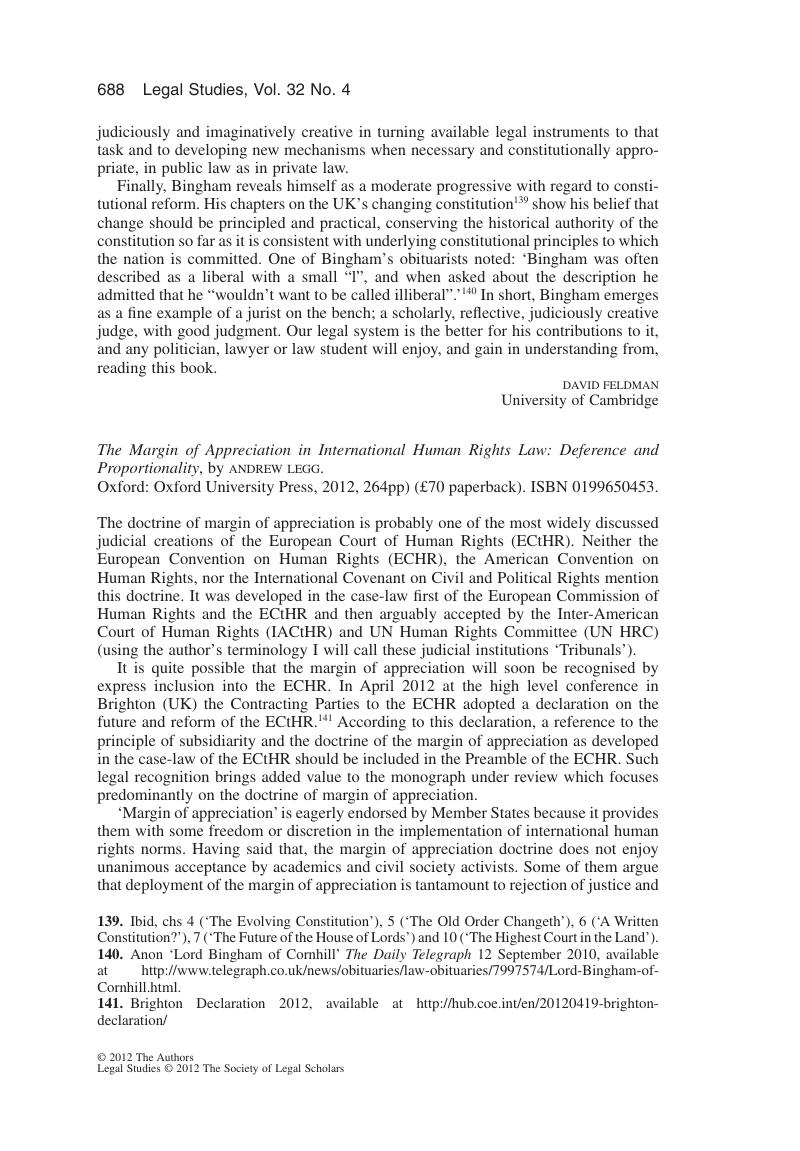Published online by Cambridge University Press: 02 January 2018

141 Brighton Declaration 2012, available at http://hub.coe.int/en/20120419-brighton-declaration/
142 See eg Benvenisti, E ‘Margin of appreciation, consensus, and universal standards’ (1999) 31 Journal of International Law and Politics 843 Google Scholar; Letsas, G ‘Two concepts of the margin of appreciation’ (2006) 26 Ojls 705 CrossRefGoogle Scholar.
143 Legg, A The Margin of Appreciation in International Human Rights Law (Oxford: Oxford University Press, 2012) p 58 CrossRefGoogle Scholar.
144 Ibid, p 18.
145 For more examples, see ibid, pp 18–23.
146 Ibid, p 195.
147 S and Marper v the United Kingdom [2009] 48 EHRR 50 at [102].
148 Legg, above n 3, p 217.
149 Ibid, p 36.
150 Bakircioglu, O ‘The application of the margin of appreciation doctrine in freedom of expression and public morality cases’ (2007) 8 Glj 711 at 712Google Scholar.
151 Gross, O and Ní Aoláin, F ‘From discretion to scrutiny: revisiting the application of the margin of appreciation doctrine in the context of Article 15 of the European Convention on Human Rights’ (2001) 23 Hum Rts Q 625 at 627CrossRefGoogle Scholar; Lester, Lord ‘Universality versus subsidiarity: a reply’ (1998) Ehrlr 73 at 75–76 Google Scholar.
152 See, K Dzehtsiarou ‘Does consensus matter? Legitimacy of European consensus in the case law of the European Court of Human Rights’ (2011) Pl 534.
153 Legg, above n 3, p 116.